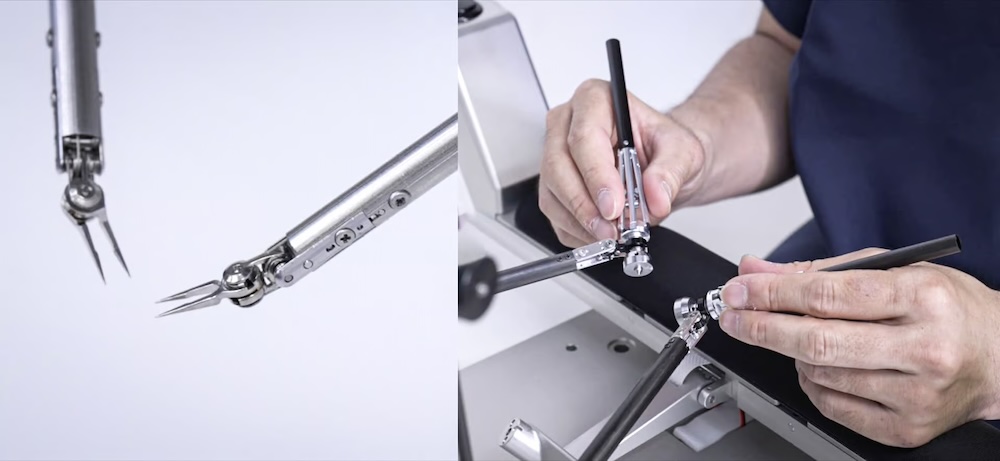|
Listen to this article |
Sony is looking to compete in the surgical robotics market with its own microsurgery assistance robot. The Tokyo-based company recently announced it developed a microsurgery assistance robot that is capable of automatic surgical instrument exchange and precision control.
Sony, an electronic technologies company, developed the robot to assist in microsurgical procedures. It is used with a microscope to work on extremely small tissues, such as veins and nerves. The system tracks the movements of a surgeon’s hands and fingers using a highly sensitive control device. The movements are then replicated on a small surgical instrument that operates similarly to the movement of the human wrist.
According to the company, the system addresses practical challenges in conventional surgical assistant robotics, such as interruptions and delays caused by manually exchanging surgical instruments. Sony’s R&D team developed the system to allow for the automatic exchange of parts through miniaturization.
The system mainly consists of a tabletop console operated by a surgeon and a robot performing procedures on a patient. According to the company, the movements of the surgeon’s hands on the console are replicated at a reduced scale of about 1/2 to 1/10 at the tip of the robot arm’s surgical instrument. Sony’s researchers hope to use the robot assistant in a wide variety of surgical procedures.
What are some of the robot’s features?
The robot assistant has automatic instrument exchange, which is achieved through the miniaturization of surgical instruments. Because of the miniaturization, multiple instruments can be stored compactly near the robot arm. The left and right arms can use small movements to exchange the instruments quickly without human intervention.
Sony also used a highly sensitive control device to enable stable and high-precision control typically required in microsurgical procedures. The compact, lightweight, highly sensitive control device reflects the delicate movements of human fingertips. The tip of surgical instrument has multiple joints to allow it to move smoothly, like the human wrist. Sony said the prototype aims to enable “nimble operation and smooth movement that almost feels like the robot intervention doesn’t exist.”
The robot prototype is equipped with a 1.3-type 4K OLED microdisplay developed by Sony Semiconductor Solutions Corporation. The display gives operators high-definition images of the affected area and the movement of surgical instruments.

Sony’s surgical robot features pen-style hand controls and low-friction actuators in the robot’s joints. | Credit: Sony
More about the performance
The company conducted an experiment in February at Aichi Medical University, where surgeons and medical practitioners who do not specialize in microsurgical procedures used the prototype. They successfully created an anastomosis in animal blood vessels. Sony said it was the world’s first case of microvascular anastomosis using a surgical assistance robot with an automatic instrument exchange function.
“Humans possess remarkably superior brain and hand coordination compared to other animals, allowing for precise and delicate movements. Microsurgery represents one of the cases where this capability is maximally utilized. However, it takes months to years of extensive training for even skilled physicians to master this technique,” said Munekazu Naito, a professor in the Department of Anatomy at Aichi Medical University. “In this collaborative study, Sony’s surgical assistance robot technology was tested to assess its capacity to enhance the skills of novice microsurgeons. The results demonstrated exceptional control over the movements of inexperienced physicians, enabling them to perform intricate and delicate tasks with adeptness akin to that of seasoned experts. I hope that surgical assistance robot technology will bring about a future where the expanded capabilities of human physicians enable advanced medical practices.”
Sony will work with university medical departments and medical institutions to further develop and verify the effectiveness of robotic assistance technology. The main goal is to help resolve issues in the medical domain and contribute to the advancement of medicine with robotic technology.
Editor’s Note: This article first appeared on sister website MassDevice.
